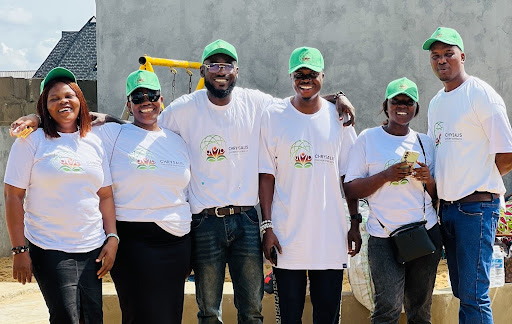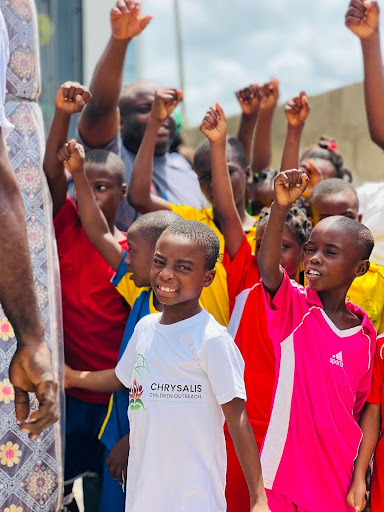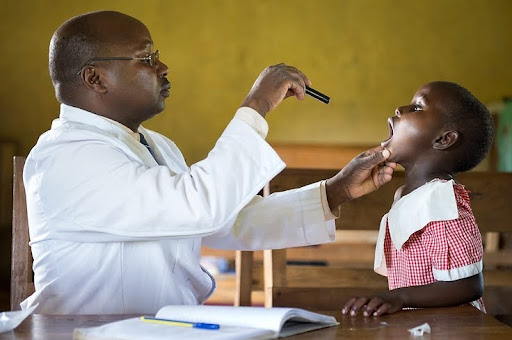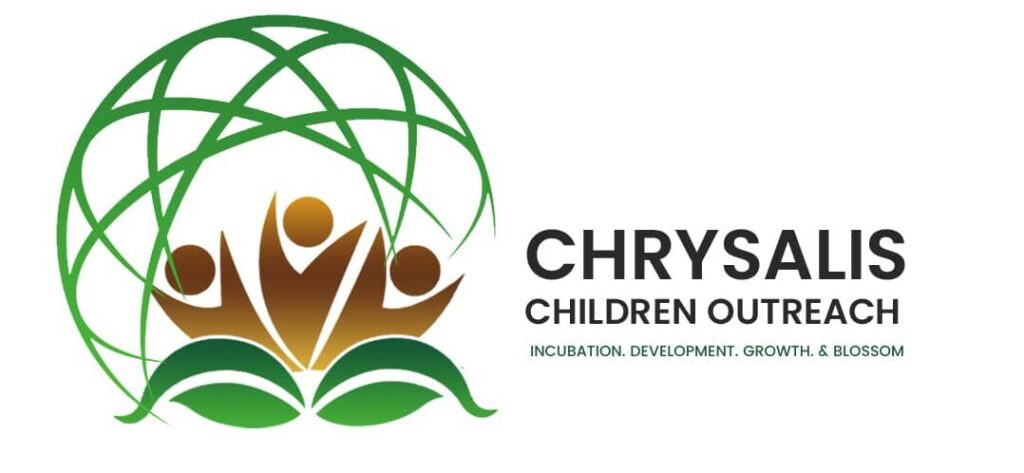In a small village near the rivers of the Niger Delta, 10-year-old John wakes up before sunrise to help his mother sell vegetables at the local market. After that, he rushes to school, carrying his books in a plastic bag.
John wants to become a teacher so he can help other kids learn. But every day is hard. His school has no chairs, no clean water, and sometimes, no teachers.
Like many children in Nigeria, John is trying his best, even when the world around him makes it tough.But for John and millions of children like him across Nigeria, these dreams face enormous challenges.
This is precisely why child advocacy is crucial in Nigeria, because every child deserves the chance to achieve, learn, and grow in safety.

Child Advocacy is Crucial in Nigeria isn’t just a statement; it’s an urgent call to action that affects over 110 million children across the country.
When we understand why child advocacy is important, we begin to see how proper support and protection can transform entire communities, especially in regions like the Niger Delta where children face unique hardships.
Understanding Child Advocacy in Nigeria’s Context
Child advocacy means standing up for children who cannot speak up for themselves. It means making sure they get the things they need to live healthy, happy lives.
It means protecting them from harm and making sure grown-ups listen carefully to what children need. In Nigeria, this work is very important because many children face big problems every day that make life hard and unsafe.
Child Advocacy is Crucial in Nigeria because millions of kids lack access to clean water to drink, good schools to go to, or safe homes where they can feel protected.
In the Niger Delta, where oil companies have worked for many years, many communities struggle with environmental damage like pollution. This damage harms the health of children and makes it harder for them to have a good future.
When we ask why child advocacy matters so much, the answer is clear when we look at the numbers. About 10.5 million children in Nigeria are not going to school at all.
Instead of playing or learning, many children must work in dangerous jobs just to survive. If no one speaks up for these children and fights for their rights, these problems will only grow bigger and harder to fix.
The Current State of Children in Nigeria
Nigeria has the largest number of children in all of Africa. These young boys and girls are the future of the country, but many face big problems that make it hard for them to grow up healthy and happy.
Learning about these problems helps us understand why Child Advocacy is Crucial in Nigeria today, more than ever before.
All across Nigeria, many children live in poverty. They don’t always have good schools to go to or doctors to help when they are sick.
In the Niger Delta, the problems are even harder because of pollution from companies. Kids there often have to drink dirty water and breathe bad air, which can make them sick and slow down their growth.
Many children also face violence and abuse. Some are forced to work instead of going to school, and others are hurt by things like trafficking or being forced to marry when they are still very young.
These are serious violations of children’s rights, and they happen because there are not enough people standing up to protect these kids.
The situation is made worse because many parents and families also don’t have enough money or resources to take care of themselves. When families are struggling, children usually suffer the most.
This can create a cycle where problems continue from one generation to the next, making it even harder for children to have a better life.
Why Child Advocacy is Important for Nigeria’s Future
Nigeria’s future depends completely on its children. When we protect and support young people today, we are building a stronger and better country for tomorrow.
This is exactly why child advocacy is important, because it is an investment in Nigeria’s long-term success and prosperity.
Children who receive proper education, good healthcare, and a safe place to live grow up to become productive adults. They start new businesses, become community leaders, and work hard to make their homes better places.
But children who face neglect, abuse, or don’t have chances to learn and grow often have a hard time throughout their whole lives.
Child Advocacy is Crucial in Nigeria because the country needs all of its children to reach their full potential.
When we make sure every child can attend school, get medicine when they are sick, and live in safety, we create a whole new generation ready to solve Nigeria’s biggest problems.

The economic benefits of child advocacy are enormous. Every naira used to protect and educate children comes back many times over in better jobs and economic growth. Countries that care about their children’s well-being almost always do better than those that do not.
More importantly, Child Advocacy is Crucial in Nigeria because it helps break the cycle of poverty and unfairness.
When children receive the support they need, they are more likely to do the same for their children one day. This creates good changes that last for many generations to come.
Environmental Challenges Affecting Children in the Niger Delta
The Niger Delta region faces special environmental problems that affect children’s health and daily lives.
Oil spills, gas flaring, and pollution from factories have caused damage to people’s like and properties. These serious problems show why Child Advocacy is Crucial in Nigeria, especially in this area.
Children in the Niger Delta often have trouble breathing because the air is full of smoke and harmful gases. Many also get skin infections after touching dirty water.
Because the land and water are polluted, families find it hard to grow crops or catch fish to eat, which makes it harder for children to stay healthy and strong.
The story of John, which we talked about earlier, is just one example of thousands of children living in the Niger Delta. Even though he has to walk through the stress, carry on responsibility at his young age, even before going to school, he still wants to learn.
But his story shows how the environment can stop children from having their children’s rights to good health and education.
Oil companies and government leaders must do their part to protect these vulnerable communities. Children should never have to choose between going to school and staying safe from pollution.
When people speak up loudly, strong advocacy makes sure that those in power listen and take action to help.
Educational Barriers and the Need for Advocacy
Education opens doors to opportunity, but millions of boys and girls in Nigeria cannot get access to quality education.
This educational crisis demonstrates exactly why child advocacy is important and why we need more people fighting for children’s right to learn, no matter where they live or how much money their family has.
In the Niger Delta, many schools lack basic facilities like clean waters, good toilets, or enough classrooms.
Some villages don’t have schools at all, so children must walk very far or stay home. Even when there is a school, some teachers don’t have the tools or training they need to teach well.
Child Advocacy is Crucial in Nigeria because education transforms lives. When children can read, write, solve problems, and think critically, they gain tools to improve their circumstances.
They can grow up to become leaders equipped to address local challenges and contribute to national development.
Sadly, some families cannot afford things like school fees, books, or uniforms. Some children must work instead of going to school so their families can buy food.
Child Advocacy is Crucial in Nigeria because advocates help fight for free, quality education so every child gets a fair chance to go to school.
Girl children face additional barriers to education. In some places, families send boys to school but not girls, thinking girls only need to get married.
Early marriage or teenage pregnancy often ends girls’ educational journeys prematurely. Strong advocacy challenges these harmful practices and promotes equal educational opportunities.
Healthcare Access and Child Survival
Good health forms the foundation for everything else in a child’s life. Without proper healthcare, children cannot learn effectively, play safely, or grow into healthy adults.
This connection between health and opportunity shows why Child Advocacy is Crucial in Nigeria.

In Nigeria, many children don’t see a doctor when they’re sick. Diseases like malaria, diarrhoea, and pneumonia still hurt and kill thousands of children each year, even though these illnesses can be treated.
Also, not having enough good food makes children weak and can slow their physical and mental development.
Children’s rights include the right to healthcare, clean water, and nutritious food. When communities lack these basics, advocates must speak up and demand change.
They work with government officials, healthcare providers, and international organisations to improve conditions for vulnerable children.
Immunisation programmes, clean water projects, and nutrition initiatives save children’s lives. But these things only help if they reach the kids who need them most.
This is another reason why child advocacy is important, it makes sure help doesn’t stop halfway, but reaches even the most forgotten children.
Child Labour and Exploitation Issues
Millions of children work instead of attending school or playing with friends. Some clean houses, sell things on the street, or help with farming and fishing.
This is not safe, and it is not fair. Child Advocacy is Crucial in Nigeria because children need help to stay safe and grow up strong.
Even though families may mean well, this kind of work is bad for children. It takes away time they should spend learning or resting.
Working at a young age can make kids sick and stop them from getting a good education. Without school, they may not get good jobs when they grow up. This can keep families stuck in poverty or even cause a nuisance in the country.
Some children go through even worse things. They may be taken far from home and forced to work, or they may be hurt sexually. These actions break children’s rights and must be stopped.
The Role of Government and Policy
The government makes rules and plans that affect every child’s life. When officials make good decisions, children benefit through better schools, healthcare, and protection.
But when leaders don’t listen or don’t care, children suffer the consequences. This is why Child Advocacy is Crucial in Nigeria, it helps leaders make smart choices that protect kids.
Nigeria has a law called the Child Rights Act. It is meant to keep children safe and healthy. But not every part of the country implements this law the way it should.
Some children are still abused, left out, or forgotten. Advocates work hard to make sure these laws are followed, not just written down.
Child Advocacy is Crucial in Nigeria because it helps government leaders understand what children need. Many times, leaders make plans without asking families or kids. Advocates speak up for children so their voices are heard when rules are being made.
Local government officials have significant power over children’s daily experiences. They choose where to build schools, provide clean water, or enforce child protection laws.
Community-based advocacy ensures that these local leaders understand and respond to children’s needs.
Community-Based Solutions and Support Systems
When people in a community work together, children are safer and happier. Parents, teachers, neighbours, and leaders can join hands to make sure every child grows up healthy and strong.
This is why child advocacy is important, it helps people protect and care for their children right where they live.
In the Niger Delta, some towns have come up with smart ideas to help children. They’ve built small bridges over dirty water, opened schools in their villages, and cleaned up their areas.
Traditional leaders and elders can help a lot too. When these influential people understand and support children’s rights, they can implement changes that benefit many families.
Women’s groups and mothers’ unions are also doing great work. They run health programmes, support girls in school, and help families that are struggling. They care because they see what children go through every day.
When neighbours keep an eye out and help each other, children are less likely to get abused or be mistreated. This kind of teamwork has always been part of African life.
By working together, we can solve today’s problems and give every child a brighter future.
Success Stories and Progress Made
Despite significant challenges, Nigeria has made important progress in protecting and supporting children.
These success stories demonstrate that Child Advocacy is Crucial in Nigeria and show what’s possible when people work together for children’s welfare.
Today, school enrollment has increased significantly over the past decade, particularly for girls. More children now have access to immunisations that prevent deadly diseases.
Child mortality rates have decreased, meaning more babies survive their first years of life.
Several states have successfully implemented the Child Rights Act, creating better legal protections for young people. Law enforcement agencies have improved their response to child trafficking and abuse cases.
This is all happening because people and groups have spoken up and fought for children’s safety and happiness.
Nigeria has also gotten help from other countries. These partnerships have helped build better schools, hospitals, and child protection centres. But this help only works well when local people speak up and make sure it helps real children in real ways.
The Economic Case for Child Advocacy
Investing in children’s welfare generates significant economic returns for families, communities, and the entire nation. In fact, every extra year of school can help them earn 10–15% more in the future!
This means stronger families and a better economy for everyone. Countries with higher education levels consistently achieve better economic growth and development outcomes.
Healthcare investments in children prevent costly health problems later in life. Proper nutrition during childhood affects cognitive development and future productivity.
Children who receive good healthcare become healthier adults who contribute more to society and require less expensive medical care.
Child protection programmes prevent social problems that cost governments billions of naira annually.
When children receive support and protection, they’re less likely to engage in criminal activities or require expensive social services as adults. This prevention approach saves money and improves lives.
The Niger Delta is full of potential. But that potential depends on the children. If we give them the tools they need, like good schools and hospitals, they will grow up to make their communities better for everyone.
Moving Forward
Understanding why Child Advocacy is Crucial in Nigeria is just the beginning. Real change happens when people take action to protect children and support their rights.
Everyone can help in some way. Parents can make sure their children go to school and visit the doctor. Teachers can make classrooms safe and kind.
Community leaders can help build schools and clean water systems. Business owners can choose not to hire children and instead support children’s education.
The journey toward full realisation of children’s rights in Nigeria continues. Every step forward brings hope to millions of young people who dream of better futures.
Every voice raised in advocacy creates possibilities for positive change that can transform communities and the entire nation.
This is why child advocacy is important for building a better future. When we care for children like John, we help them grow into strong, smart adults who will lead Nigeria forward.
The fight for children’s rights is not over. But every step we take gives hope to millions of children. Every person who speaks up for kids helps create a better Nigeria.
Child Advocacy is Crucial in Nigeria because children are the future of our country. Their dreams matter. Their health and safety matter. Now is the time to act.
